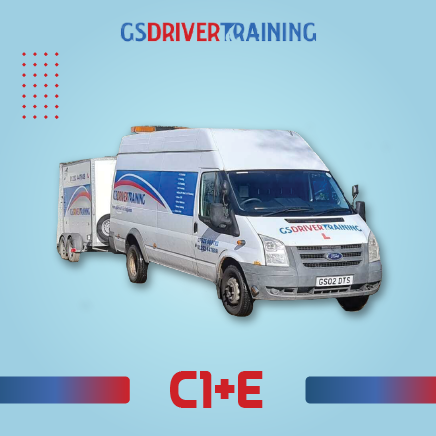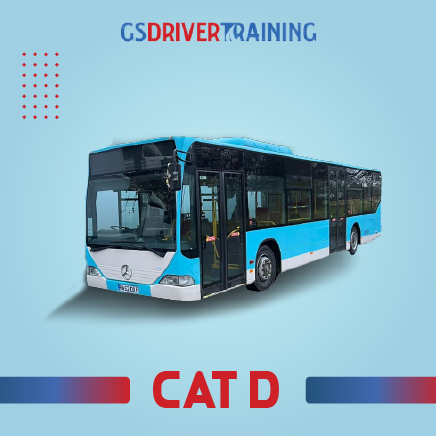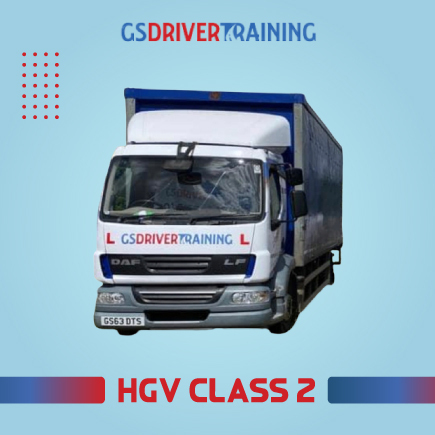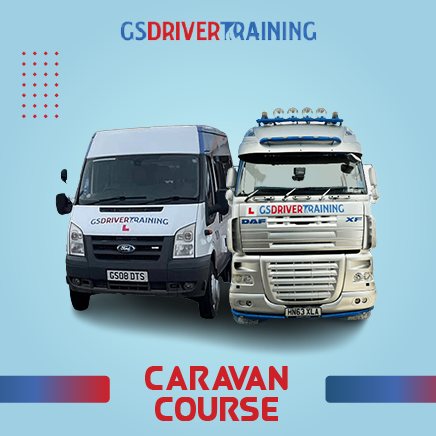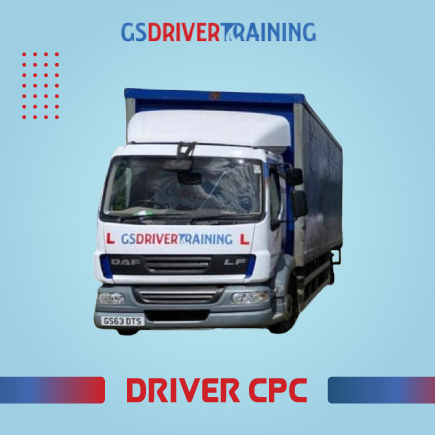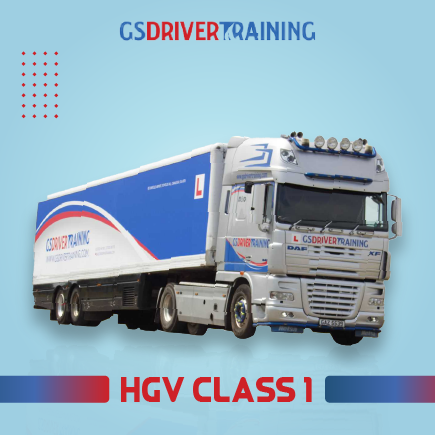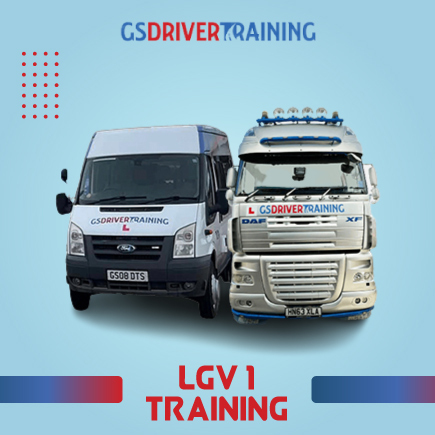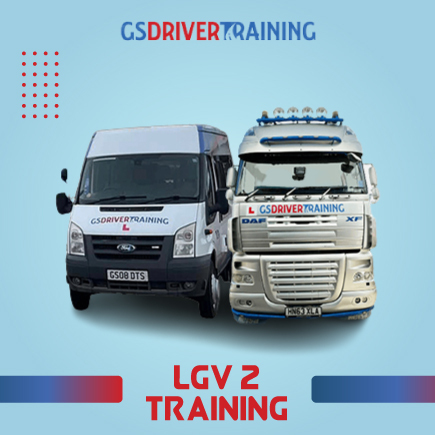HGV Training Courses
In the UK, HGV licences are classified by vehicle size and type. These categories encompass Category C1, C1+E, C, and C+E. The specific category you require depends on the type of vehicle you aim to drive. To commence HGV training courses, you'll need a provisional HGV licence. You can apply for this through the DVSA (Driver and Vehicle Standards Agency). The HGV driving training often commences with a theory test covering subjects such as the Highway Code, vehicle safety, and specific HGV regulations. This constitutes the core of HGV training.
It involves hands-on instruction in operating a heavy goods vehicle, encompassing manoeuvres, reversing, and on-road driving. The HGV driving courses are usually delivered by professional instructors or via a certified training school. After training and gaining confidence in your abilities, you'll undertake a practical test to demonstrate your driving skills. If you intend to drive HGVs professionally, you'll need to attain the Driver CPC, which includes a theory test and a practical demonstration.
It's a mandatory qualification for professional drivers. A medical examination is also necessary to confirm your physical fitness for driving HGVs. Following acquiring your HGV licence, you can embark on your job search. Many training schools or organisations offer assistance with job placement. It's imperative to continuously enhance your skills and keep abreast of evolving regulations. Periodic training is often mandatory to maintain your HGV licence.
At GS Driver Training you will get the HGV driving training so that you will learn how to operate HGV/LGV vehicles in every situation. For this, you will find that GS Driver Training offers you several HGV training courses for better understanding and clarification. In this HGV driving training, you will get the knowledge of HGV driving courses that will help you to become a professional driver.
Our Training Courses
Regarding. Should you have any specific queries or require further information on a particular aspect of HGV training, please do not hesitate to get in touch. Learning to drive HGVs/ LGVs has been the gateway to a long and fulfilling career for millions of drivers. The UK has a national shortage of HGV drivers, so there has never been a better time to get qualified.
GS Driver Training offers high-quality training courses at a competitive price. Please get in touch with us if you have questions. We are here to help you. Once you've completed your training, you'll be ready to operate various large commercial vehicles. Best of all, you'll have access to an industry with many opportunities around the UK.
Check out our customer reviews: https://www.gsdrivertraining.com/happy-customers/
Navigating HGV Driver Training and Licensing Costs
Becoming a skilled Heavy Goods Vehicle (HGV) driver is not only a rewarding career choice but also a significant investment. Whether you're a novice looking to obtain your initial licence or an experienced driver seeking further qualifications, understanding the costs associated with HGV driver training and licensing is crucial. In this comprehensive guide, we'll explore the various elements that make up the overall training cost, consider the value of HGV training, and shed light on licensing procedures.
Provisional Licence
Before embarking on your HGV driver training, you must obtain a provisional HGV licence. This allows you to legally train for and take the HGV test. The cost of acquiring this provisional licence is relatively low, making it an accessible starting point for aspiring drivers.
Core Elements of HGV Driver Training
The heart of your HGV training is the practical and theoretical driver training provided by experienced instructors. These experts guide you through all aspects of HGV operation, including vehicle handling, manoeuvers, and on-road driving. The training typically involves intensive sessions at training centres where you gain the knowledge and skills required to excel in the HGV industry.
Value in Great Value HGV Training
Great value HGV training is more than just affordable pricing. It's about the quality of training, the expertise of the instructors, and the resources available at the training centre. When selecting a training provider, consider the balance between cost and value. A training centre that offers exceptional training is an investment in your future as a skilled HGV driver.
Understanding Licence Training Costs
The cost of your HGV licence training covers several components, including practical and theoretical training, test fees, and administrative costs. These costs can vary depending on the licence category and the training provider. Be sure to inquire about the breakdown of expenses to gain a comprehensive understanding of what you're paying for.
HGV Test and CPC Training
To become a fully qualified HGV driver, you must pass both the practical HGV test and the Certificate of Professional Competence (CPC) test. The CPC training ensures you are proficient in areas like road safety, vehicle operation, and driver well-being. It's a mandatory qualification for professional drivers.
Automatic HGV Training
Automatic HGV training provides drivers with the skills to operate automatic lorries. This specialization can enhance your employability, but it's important to consider the additional training cost associated with this qualification.

LGV Driver Training
Light Goods Vehicle (LGV) driver training is a parallel path that covers vehicles that fall outside the category of heavy goods. If your career goals involve LGVs, this training is an essential part of your journey. Training centres play a central role in your development as an HGV driver.
The quality of facilities, the availability of training resources, and the expertise of instructors can greatly influence the value of your training experience. Research different training centres to find the one that aligns with your needs. HGV training courses and licensing costs are investments in your career. The value of your training goes beyond the financial aspect; it encompasses the skills, knowledge, and expertise you gain throughout the process. Understanding the cost components, weighing the value of training, and selecting the right training centre are key steps in your journey towards becoming a proficient HGV driver with a sought-after licence.
The cost of HGV training courses is a consideration that aspiring HGV drivers should carefully weigh. HGV training courses are essential steps on the path to becoming a qualified HGV driver. These courses encompass both theoretical and practical training, equipping trainees with the knowledge and skills required to excel in their future roles. While the investment in HGV driving training cost is significant, it's important to view it as an investment in one's career. Skilled HGV drivers are in high demand, and the value of their qualifications extends beyond the initial training cost. By undergoing comprehensive training, individuals position themselves for rewarding careers in the transportation industry and open doors to numerous job opportunities.
PCV Training Courses
PCV (Passenger Carrying Vehicle) training is crucial for individuals aspiring to become professional drivers of buses and coaches responsible for transporting passengers. Here's an overview of what PCV training typically entails. In the UK, PCV licences are categorised according to the size and type of passenger-carrying vehicles. These categories include Category D1, D1+E, D, and D+E, with D being the most common for larger buses and coaches. You'll need to secure a provisional PCV licence to initiate your PCV training. This can typically be obtained through the UK DVSA (Driver and Vehicle Standards Agency).PCV training usually commences with a theory test, covering topics such as passenger safety, road regulations, and vehicle operation specific to buses and coaches.
The core of PCV training involves hands-on guidance in operating passenger-carrying vehicles. Training encompasses vehicle operation, passenger management, manoeuvres, and on-road driving. Experienced instructors or accredited training schools often conduct this training. After completing your training and gaining confidence in your abilities, you must pass a practical test to demonstrate your proficiency in driving passenger-carrying vehicles. If your ambition is to drive PCVs professionally, attaining the Driver CPC qualification is necessary. This certification includes theoretical and practical components and is mandatory for professional PCV drivers. A medical examination is typically required to ensure your fitness for safely operating passenger-carrying vehicles. Following the acquisition of your PCV licence, you can embark on your search for employment opportunities within the passenger transport sector. Many training schools and transport companies offer assistance with job placements. To retain your PCV licence, periodic training and assessments are often essential. This ensures that you stay updated on regulations and maintain your skills.
FAQ
HGV (Heavy Goods Vehicle) Training is the process of acquiring the qualifications and experience to legally drive larger lorries, goods vehicles and buses. It includes learning how to apply safety regulations and the appropriate techniques of driving in the UK.
You will need to complete an application form and pass a theory test in order to become a HGV driver. After that you need to complete a minimum of 35 hours of HGV training, with an approved training provider.
HGV and PCV (Public Carriage Vehicle) training are both parts of the same Driver Certificate of Professional Competence (CPC). However, there are different qualifications involved in HGV and PCV training. HGV training covers the larger lorry and goods vehicles, while PCV training covers the smaller vehicles such as buses and minibuses.
Yes, it is necessary to have a valid HGV license and to have undertaken the appropriate training in order to legally drive a heavy goods vehicle in the UK.
Yes, the type of HGV training that you take will depend on the size and type of vehicle you are going to be driving. For example, if you are going to be driving a large articulated lorry, then you will need to take Category C1 HGV Training.
This will depend on your previous experience and the type of HGV training you are taking. It can typically take anywhere from one to four weeks to complete the HGV training.
Yes, you will need to have completed a minimum of 35 hours of HGV training before taking the practical driving test. This will include both in-classroom instruction and practical driving lessons with an approved training provider.
The cost of HGV training will vary depending on the type of training, the size and type of vehicle you are going to be driving and the experience of the instructor. However, it is generally considered to be an affordable way to acquire the necessary qualifications to legally drive a HGV.
Yes, in most cases you must be over 21 years of age in order to take HGV Training. You may also be required to have a valid UK driving licence.
HGV Training is designed to be carried out in a safe and controlled environment, and an approved training provider will ensure necessary safety measures are in place. That being said, all drivers should take necessary safety precautions and be aware of the potential risks when operating HGV vehicles.

